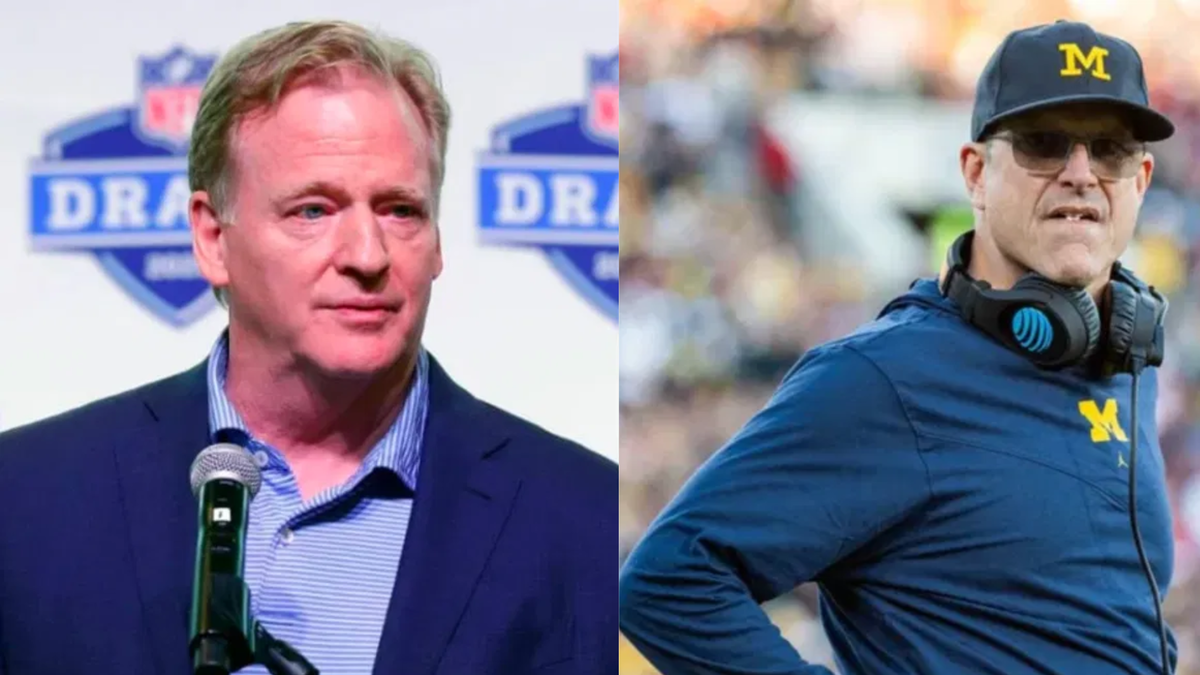
Imago
Image Credits: Imago

Imago
Image Credits: Imago
Dark clouds are looming over the new head coach of the Los Angeles Chargers. While their effect on Jim Harbaugh’s future in the NFL (if at all they have any) is yet to be seen, they sure affect the former Michigan Wolverines head coach’s future in the NCAA. That is if he decides to return to college football within the next four years.
Watch What’s Trending Now!
Do you remember how, when the Wolverines started their championship-winning campaign last season, Jim Harbaugh was suspended for three games? Well, this NCAA ruling – a four-year show-cause order and a one-year suspension – has everything to do with that. The suspension was self-imposed by the University of Michigan after an NCAA investigation into recruiting violations during the COVID-19 dead recruiting period.
After almost a year since this happened, the NCAA’s Division I Committee on Infraction released its final decision on Wednesday, stating that Harbaugh “violated recruiting and inducement rules, engaged in unethical conduct, failed to promote an atmosphere of compliance and violated head coach responsibility obligations” during the investigation into impermissible recruiting during the dead period. As a result, he’s been handed the show-cause order, which will be applicable from August 7, 2024, to August 6, 2028. But what does this mean?
ADVERTISEMENT
If any college football program hires Jim Harbaugh in this four-year period, he’ll be suspended for the entirety of the first season of employment. Moreover, if he were to return, he’d be “barred from all athletically related activities, including team travel, practice, video study, recruiting and team meetings.” This raised the obvious question: Will Roger Goodell consider a potential four-year ban on Jim Harbaugh in the NFL, too, considering the punishments imposed on former Ohio State coach Jim Tressel and quarterback Terrelle Pryor? Well, when NBC asked the NFL, the organization didn’t respond.
However, Harbaugh’s attorney, Tom Mars, gave his take on the matter and downplayed the NCAA’s ruling, likening it to a trivial school discipline. “The way I see it, from Coach Harbaugh’s perspective, today’s COI decision is like being in college and getting a letter from your high school saying you’ve been suspended because you didn’t sign the yearbook,” he wrote on X, also taking a dig at the NCAA subsequently.
ADVERTISEMENT
“If I were in Coach Harbaugh’s shoes and had an $80 million contract as head coach of the Chargers, I wouldn’t pay any attention to the findings of a kangaroo court which claim to represent the principles of the nation’s most flagrant, repeat violator of the federal antitrust laws.” This likely refers to the multiple antitrust cases brought forward by college athletes accusing the NCAA and its members of violating antitrust law by conspiring to limit athletes from profiting off their NIL.

USA Today via Reuters
May 29, 2024; Costa Mesa, CA, USA; Los Angeles Chargers coach Jim Harbaugh during organized team activities at Hoag Performance Center. Mandatory Credit: Kirby Lee-USA TODAY Sports
As for Jim Harbaugh, he signed a five-year deal with the Chargers, which will pay him $16 million annually. So, it’s not likely that he’ll be thinking about a return to college football anytime soon. With his comments, Mars hinted at a belief that the NFL may not follow the NCAA’s lead and suspend him based on the allegations. Even ProFootballTalk analyst Mike Florio believes the NFL will act according to its own rules and precedents, irrespective of NCAA decisions. According to Florio, essentially, the NFL often does what it wants, and they’ll likely continue that trend with Harbaugh.
ADVERTISEMENT
Amidst the Harbaugh case, the NFL’s past punishments on Jim Tressel and Terrelle Pryor are making headlines, too, wherein the league suspended them.
ADVERTISEMENT
Is the NFL showing dual faces?
Jim Harbaugh’s NCAA penalty has many wondering its impact on his future in the NFL. However, it brought up the case of Jim Tressel from 2011. Tressel resigned as the head coach of the Ohio State Buckeyes after the NCAA found out he was lying about his players receiving improper benefits. If he had stayed in Ohio, he would’ve been subject to a five-game suspension at the start of the season. However, he resigned and instead joined the Colts – a move that no one saw coming after the allegations against him.
Since he made the jump to the NFL, the organization decided to take action after the NCAA handed him a five-year show-cause order. They suspended him for the first six games of the Colts’ season, which Roger Goodell supported. Additionally, this investigation “also saw Terrelle Pryor receive a suspension if he returned to college.” Pryor sold his 2008 Big Ten championship ring and a gold pants trinket, an offense that would’ve seen him miss the first few games of the next college football season. Instead, Pryor entered the NFL supplemental draft.
Top Stories
Footage Surfaces of Puka Nacua’s Brother Samson Slapping Fan After Arrest for Allegedly Stealing Lakers’ Adou Thiero’s SUV
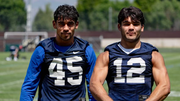
Browns & Kevin Stefanski Sign Ousted Cowboys Player For Shedeur Sanders Before Week 16 Bills Game
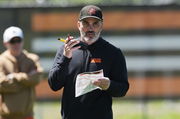
“RIP”: Prayers Pour In as Tom Brady’s Raiders Struck by Tragedy

“Rest in Peace”: Prayers Pour In From Dan Marino as Dolphins Legend Mourns Tragedy in South Florida Football
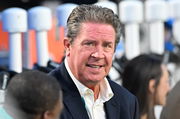
“What Do You Come Back For?”: Tony Gonzalez’s Strong Retirement Message to Travis Kelce Amid Chiefs’ Rebuild
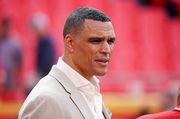
After the Oakland Raiders drafted him, Terrelle Pryor received a five-game suspension for “undermining the integrity of our draft eligible rules.” Speaking about this decision, Roger Goodell said, “In my judgment, allowing players to secure their own ineligibility for college play in order to avoid previously determined disciplinary consequences for admitted conduct reflects poorly not on college football but on the NFL, by making it into a sanctuary where a player cannot only avoid the consequences of his conduct, but be paid for doing so.”
ADVERTISEMENT
As for Jim Tressel, Goodell said, “I support that decision and think that’s a wise one. I think it was clear that if they didn’t take an appropriate action, I would have taken appropriate action.” So, with Harbaugh’s current predicament, the question is whether the NFL will impose similar measures. As of now, the NFL has remained tight-lipped, and Harbaugh is presumably safe from any action. What are your thoughts on this? Share them in the comments!
ADVERTISEMENT
ADVERTISEMENT
ADVERTISEMENT

